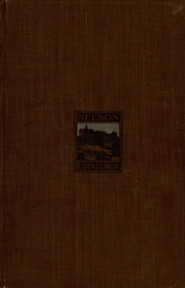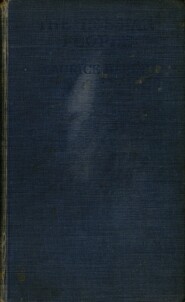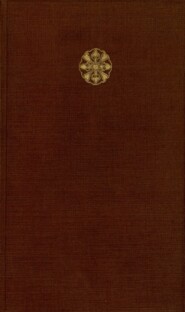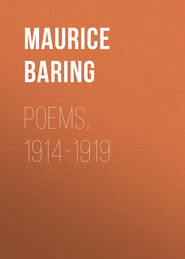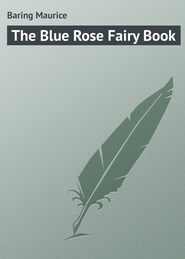По всем вопросам обращайтесь на: info@litportal.ru
(©) 2003-2024.
✖
Passing By
Настройки чтения
Размер шрифта
Высота строк
Поля
A. is much better and went for a walk with me this morning.
Sunday, August 14th.
Housman was coming down yesterday but telegraphed to say he was detained. Mrs Housman went to Mass. In the afternoon we received a visit from an American who has come here in a yacht and met Cunninghame and myself in the town this morning. His name is Harold C. Jefferson. When I was introduced to him he said he did not quite catch my name. I said my name was "Mellor"; he said: "Lord or Mister?" Cunninghame told him where he was staying and he said he would call – he knew the Housmans in America. He asked us all to go on board his yacht to-morrow. Mrs Housman, Cunninghame and myself accepted. Lady Jarvis said she would stop with A. who is not up to it.
Monday, August 15th.
We had luncheon on board Mr Jefferson's yacht, a large steam vessel. It has on board a piano and an organ, both of which are played by electricity, which is in some respects satisfactory, but the tempo of the Meistersinger Overture which was performed for us was accelerated out of all recognition.
Tuesday, August 16th.
A Miss Simpson called in the afternoon to ask Mrs Housman to help with some local charity; she lives at the Hotel. She said she found it very inconvenient not being able to go to Church. We wondered what prevented her doing so, but she soon gave us the reason herself. She said that the local clergyman was so low – no eastward position.
A. is much better and went for a walk with Lady Jarvis.
Wednesday, August 17th.
Housman has written to say that he will not be able to come down until late in September. Carrington-Smith is unwell and he is overwhelmed with business. He, Housman, may have to meet a man in Paris.
Thursday, August 18th.
A rainy day. Cunninghame and I went out in spite of the rain.
Friday, August 19th.
Cunninghame played golf with General York.
Saturday, August 20th.
Lady Jarvis, Mrs Housman and myself went for a drive. A. played golf with Cunninghame. I began John Inglesant last night. Mrs Housman has never read it. After dinner we had some music. Mrs Housman played Schubert's Prometheus and hummed the tune. She says it is a man's song.
Sunday, August 21st.
A. says he is going to have his yacht sent up here – he will be able to sail back in her. Mrs Housman went to Mass. In the afternoon we sat in the garden and read out aloud Cashel Byron's Profession, a novel by Bernard Shaw. A. enjoyed it immensely.
Monday, August 22nd.
We drove to the Lizard in a motor and had luncheon at the Hotel. A. misses his yacht very much but he has sent for her. After dinner we played Clumps.
Tuesday, August 23rd.
Cunninghame was going to-morrow but he is staying till Saturday. Mrs Housman went to Newquay to the convent for the day. Lady Jarvis took A. for a drive.
Wednesday, August 24th.
This morning A., Cunninghame and myself walked down to the town. We met a friend of Cunninghame's called Randall, who is yachting. He has just come from France.
Letter from Guy Cunninghame to Mrs Caryl
GREY FARM, CARBIS BAY,
Thursday, August 25th.
DEAREST ELSIE,
I am stopping here till Saturday, then Worsel, then Edith's. You had better write to Edith's. Yesterday morning we were in the town, George, Godfrey and I, and we met Jimmy Randall, who has come here in the Goldberg's yacht. They had been to St Malo and other places in France. When we said we were staying with the Housmans, Randall said there was not much chance of our seeing Housman for some time as he was having the time of his life with Mrs Fairburn at a little place near Deauville.
This came as a revelation to George, who had no idea of Housman's adventures. He has scarcely spoken since. We are having a very happy time and I am miserable at having to go away. George is quite well. He has sent for his yacht, but he is not staying on very long as he has got to go to one or two places before he goes back to London. The weather has been divine. Godfrey is quite cheerful.
I shan't write again till I get to Edith's. I shan't stop more than a night at Worsel on the way.
Edith is clamouring for me to come. The Caryls are staying there.
Yrs.
G.
From the Diary of Godfrey Mellor
Thursday, August 25th.
I went out for a walk with Cunninghame; he asked me whether I had liked John Inglesant. I said I had it read with interest but it gave me the creeps; it had the chill of a dream world; I preferred the character of Eustace Inglesant to that of his brother John. Cunninghame said he had read it five times; that John Inglesant, Flaubert's Trois Contes and Anthony Hope's The King's Mirror were his three favourite books. I had read neither of the others. Mrs Housman and A. went for a walk in the afternoon. After dinner Lady Jarvis read out a story by Stevenson.
Friday, August 26th.
Mrs Housman went to the town in the afternoon. A. and Cunninghame played golf. I went for a walk with Lady Jarvis. She talked about Mrs Housman. She said it was wonderful what comfort she (Mrs H.) found in her religion. As far as she herself was concerned, she had never ceased to appreciate the luxury of not going to church on Sunday, so much had she disliked being made to go to church before she was grown up. I said Mrs Housman had told me that Roman Catholic children enjoyed going to church. She said: "Yes, and their grown-up people too. Clare will probably go to church this afternoon. If I was a Catholic I could understand it." She said it was the only religion she could understand. "Unhappily to be a Catholic," she said, "one must believe. I am not talking of the ritual and the discipline – I mean one must believe, have faith in the supernatural, and I have none." She said that she thought religion was an instinct. Her religion consisted in trying not to hurt other people's feelings. That was difficult enough. She said she had once come across this phrase in a French book: "Aimez-vous les uns les autres, c'est beaucoup dire supportez-vous les uns les autres, c'est déjà assez difficile." Some people, she said, arrived at religion by disbelieving in disbelief. She didn't believe in dogmatic disbelief but that didn't lead her to anything positive. She said she was glad for Mrs Housman that she had her religion. I asked her if she thought Mrs Housman was very unhappy. She said: "Yes; but there comes a moment in unhappiness when people realise that they must either live, or die. Clare passed that moment a long time ago." People often made God in their own image. Mrs Housman had a beautiful character. She, Lady Jarvis, had no stuff in her to project a deity with. She thought that religion seldom affected conduct. She thought Mrs Housman would have been just the same if she had been brought up as a free-thinker or a Presbyterian. She thought her marriage and her whole life had been a gigantic mistake. She ought, she said, to have been a professional singer. She was an artist by nature. I said I was struck by Mrs Housmans strong common-sense and her tact in dealing with people. "That would have made her all the greater as an artist," Lady Jarvis said. "In all arts you want to be good at other things besides that art. Riding needs mind." She said it was no good wishing to be otherwise but she thought it was very tragic. She said: "If I believed there was another life, this sort of thing wouldn't matter, but as I don't it matters very much." I said it struck me the other way round. If one didn't believe in a future life I didn't see that anything could matter very much. I asked her if she positively believed there wasn't another life. She said: "I don't know. I only know I don't believe in a future life." I asked her if that wasn't faith. She said very possibly, but she at any rate hadn't the fervent faith in no-God that some atheists had. In any case she was not intolerant about it. I asked her if it had not often struck her that agnostics and free-thinkers were still more intolerant than religious people and that they had least business to be. She said that was exactly what she had meant. The religion of other people irritated them; they wanted people to share their particular form of unbelief. She never did that. She thought dogmatic disbelief intolerable. She had the greatest respect for Catholics and would give anything to be able to be one. Mrs Housman never spoke about her religion. We talked about reading. I said I always read the newspapers or rather The Times every day. I had done so for fifteen years. She said she never did except in the train but she knew the news as well as I did. We talked about what is good reading for the train and about journeys. I told her of a journey I had once taken in France in a third-class carriage. She said it was lucky one forgot physical discomfort at once unlike mental discomfort. She said something about the appalling unnaturalness of people when they had to deal with death, and then of the misery in seeing other people suffer, of the hardness of some people, and of a book she had just been reading, called Katzensteg, by Sudermann, and then of Germans, and so, to music, of Housman's great undeveloped musical talent, of Jews, how favourable the mixture of Jewish and German blood was to music. I said something about Jews being rarely men of creation or action. She said they were just as persistent in getting what they wanted as men of action, so she supposed that it came to the same. Disraeli was a man of action, she supposed, and all the great socialists, Marx and Lassalle, they got what they wanted. "Un de nous a voulu être Dieu et il l'a été," she said a Jewish financier had once said. This led her to Heine. He was her favourite writer, both in prose and verse. Had I ever read his prose? I ought to read Geschichte der Religion und Philosophie in Deutschland. It was the most brilliant book of criticism she knew. It was the Jews who had invented all great religions, and socialism was the invention of the Jews. Some people said the Russian revolution was Jewish in idea and leadership and might very likely lead to a new political creed. She said she hated anti-Semitism. This led us to Christianity. Christianity to her meant Catholicism. She could not understand any other form of it. She thought there was nothing in the world more silly than attempts to make a religion of Christianity without the Church – there could only be one Church. "But," I said, "you disbelieve in it." She said: "Yes; but the only thing that could tempt me to believe in it is the continued existence of the Catholic Church." She said: "It's there; it's a fact, whether one believes in its divine origin, as Clare does, or whether one doesn't, as I don't. It must either all hang together or not exist. You can't take a part of it and make a satisfactory and reasonable religion." Not only that, nothing seemed to her more foolish than the attempts to make a religion of Christianity without the Divine element, in which Christ was only a very good man. I said if she did not believe in the divinity of Christ the story could be nothing more to her than a fable. She said: "If one only regards it as a fable, as I suppose I do – but again I have no dogmatic disbelief in it – it is still the most beautiful, impressive, wonderful and tragic story ever invented and it seems to me to lose its whole point if Christ was only a man with hypnotic powers and a head turned by ambition or illusion." She quoted a Frenchman, who had said that he adored Jesus Christ as his Lord and God, but "s'il n'est qu'un homme je préfère Hannibal." Napoleon too had said that he knew men and Jesus Christ was not a man. Regarded as a story the whole point and beauty of the Gospel were lost in all modern versions, rewritings, explanations and interpretations, and none of them held together. She said it was as if one rewrote the fairy tales and made the fairies not fairies but only clever conjurers. By this time we had reached home.
Saturday, August 27th.
Cunninghame went away early this morning. Mrs Housman told me that she was not going to spend the winter in London; she was going to Florence, and it was possible she might be away for a whole year. A. went out this afternoon with Lady Jarvis.
Sunday, August 28th.
Mrs York called in the afternoon. Mrs Housman was out with A. Lady Jarvis and myself entertained her. She was most affable and not at all stiff, as she was last year. She said she had known several of A.'s relations in India. As she went away she said to Lady Jarvis, in the hall: "You never told me Mrs Housman was an American– that makes all the difference."
Monday, August 29th.
We all went to the Land's End for the day.
Tuesday, August 30th.
A.'s yacht has arrived. We had luncheon on board and went for a short sail in the afternoon; the sea was reasonably smooth, but Lady Jarvis said that the sea under any conditions gave her a headache.
Wednesday, August 31st.
Mrs Housman and A. went out for a sail in the morning and came back for tea. A. says he will have to go away in a day or two. After dinner Mrs Housman read out Burnand's Happy Thoughts.
Thursday, September 1st.
A rainy day. Mrs Housman called on Mrs York and has asked her and the General to luncheon next Sunday. I went out for a walk in the rain by myself and got very wet. Mrs Housman said that the Indian servant stood motionless behind Mrs York's chair during the whole of the visit. This embarrassed her. She felt inclined to draw him into the conversation.






